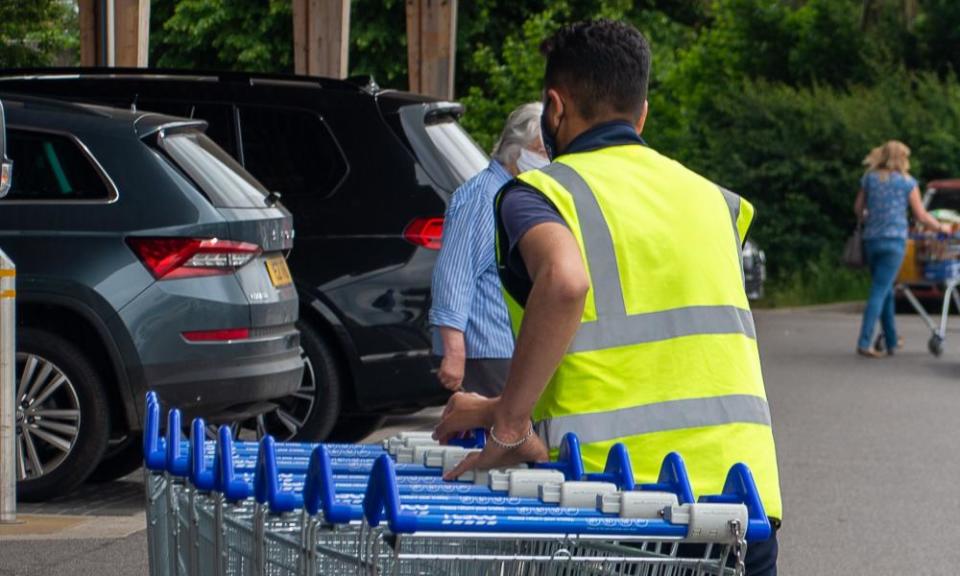Shelf-stacking more useful in pandemic than master’s degree – survey

Graduates who spent last year stacking shelves, working as an Amazon driver or volunteering are far more employable than those who “waited out” the pandemic by continuing their education, a study has found.
The Early Careers Survey 2021 found that one in four university students spent an average of £8,666 on a master’s qualification last year, many in the hope that the extra qualification would give them an edge on the job market.
“It was an extremely rational decision to swerve the jobs market for a year in 2020 but if all you’ve done is a master’s degree and no work experience at all, you’re going to struggle to show employers that you have those oven-ready work skills they need,” said Charlie Ball, the graduate labour market expert for Prospects, which carried out the survey of 7,189 young people.
Unemployment among recent graduates has risen to levels last seen during the austerity era, with young people worst affected by job shortages due to the pandemic.
But the study warns graduates against doing a master’s in the hope it will land them a better job or more money. “Students need to be aware that an additional qualification on its own won’t help them land a graduate job,” warned the study, which will be published on 24 June.
Stephen Isherwood, CEO of the Institute of Student Employers (ISE), said that “even driving an Amazon van would make you far more employable than spending the past year doing a master’s.”
According to the ISE, just (15%) of employers believe postgraduates are more skilled than other graduates. “Work experience is a far better predictor of graduates’ skills than a postgraduate degree,” said Isherwood.
“Real-life experience is invaluable to employers,” Isherwood added. “An undergraduate degree is enough to tick the ‘intelligence’ box but what makes you stand out to employers is interaction with the real world. You need to be able to articulate things you’ve done of your own volition, what’s happened when you’ve confronted difficult situations and what responsibilities you’ve taken on.
Related: Graduates face highest unemployment rate since austerity era – report
“Employers want to know what you’ve learned since leaving university about your strengths and weaknesses,” he said. “If you’ve got any thoughts about the internal workings of the business you worked for in no matter how lowly a position, then that’s great too.”
Lindsey Rowe, chief of staff and head of people and programmes at SAP Software Solutions, agreed: “When we’re looking to hire graduates, real-life experience is what makes them stand out. The academic theory they learn at university is just one aspect of what we want. What’s invaluable is knowing they’ve already learned business etiquette, achieved resilience and understand some of the nuances of business. You can’t learn those in a university setting.
“Even working in a coffee shop or in a supermarket is an invaluable, real-life experience: learning how to deal with cross, demanding customers might seem like nothing to the young person, but it’s an incredibly useful indicator for employers that they’ve developed real-world resilience,” she added.
Darren Page, selection lead for the new talents programme at Severn Trent Water, agreed. “We have seen candidates who have matured and grown personally through work experience and volunteering in ways that are very valuable to us, that they can’t learn in a lecture theatre.”

 Yahoo Movies
Yahoo Movies 